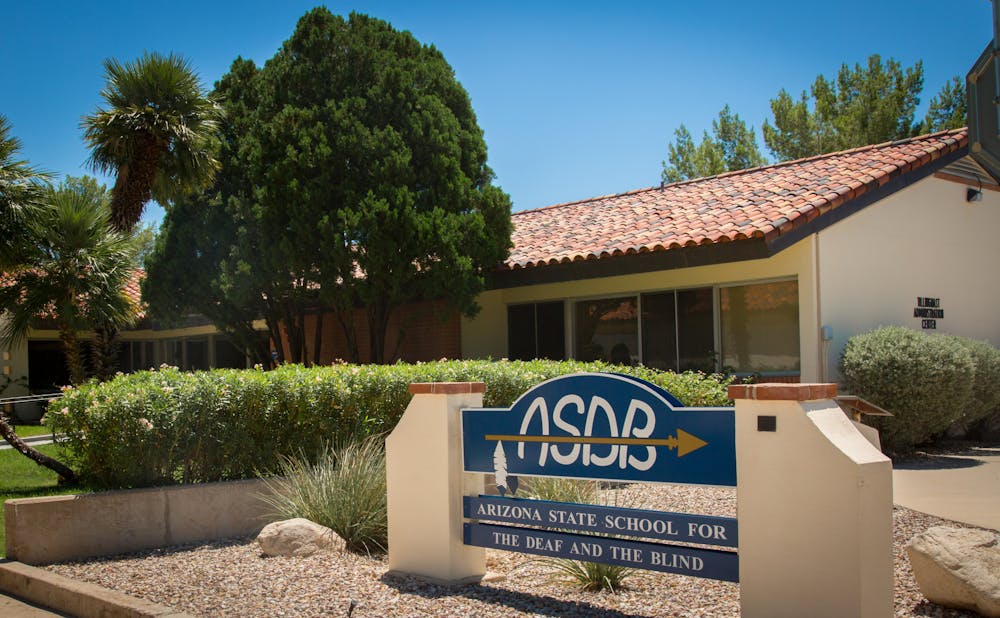Arizona School of the Deaf and the Blind has been granted a four-year reprieve from a shutdown weeks after state legislators stalled a bill to keep the 111-year-old school from operating. Parents, students and staff who utilized the school had expressed concerns about its closure.
“Our oldest son is 14 years old, and he has been in this school ever since he was 3 years old,” said Ismael Toribio Covo, a parent with two children attending the school.
According to the school’s superintendent Annette Reichman, the bill caught both parents and staff off guard. However, she believes a member of the Freedom Caucus, a group of Republican members of the United States House of Representatives, expressed concerns about how the school was being managed, and that might have led to the decision from the legislature.
“We really don’t know,” Reichman said. “We just know that certain janitors belonging to the Freedom Caucus started expressing concern about how [Arizona School of the Deaf and the Blind] is being managed.”
Reichman tried to reach out and address the concerns that the janitors had by answering their questions, but Reichman said the janitors didn’t meet or share with them what their concerns were and that there had been internal negotiations that occurred within the Senate’s Republican party.
After the state legislators mysteriously stalled the bill, which allows the school to stay open for an additional four years instead of eight or two years, the potential closure of the school has both concerned and surprised parents. The School of the Deaf and the Blind serves over 500 families and children who are blind, visually impaired, hard of hearing or deafblind from kindergarten to grade 12, according to Reichman.
Some parent concerns are that the majority of public schools are not as supportive as the schools for the deaf and the blind, and challenges may arise when residents believe that the school should be operating a lot longer.
Toribio Covo believes many public schools lack the resources and support needed for students with disabilities.
“If the school for the deaf and the blind were to close, then it would be very difficult because a lot of public schools don’t provide the resources, for example, sign language,” Covo said. “The same teachers gave us classes for free for those parents who wanted to communicate with their children through sign language.”
Covo highlighted a challenging moment his family faced when they enrolled one of their children, who is hard of hearing, in a public school. Despite their initial attempt, the lack of necessary assistance and support resulted in a distressing situation, he said, prompting their decision to bring him back to their current school, where both of their children receive the necessary support.
“One of our children was in a public school and did not have the same help or support,” Covo said. “He was moved to another school for two years, and they bullied him because of the hearing aid devices. He didn't want to use them, and he asked us to return to this school."
Dan Ben, a resident who routinely walks with his dog every morning around the campus, said he was concerned about the time the school was given to operate.
“They only have four years left to operate when it should be operating a lot longer,” Ben said. “There’s always more kids being born either blind or deaf or both.”
Ben highlights the positive atmosphere within the school and among the students.
“They’ve always got smiles on their faces,” Ben said. “What will they do with these children that need our help?”
Reichman believes the school will have an extended period in the future.
"What we think will happen is that at some point, the legislature may pass another continuation bill and give us more time,” Reichman said. “There’s active interest in extending the continuation up to 10 years.”

